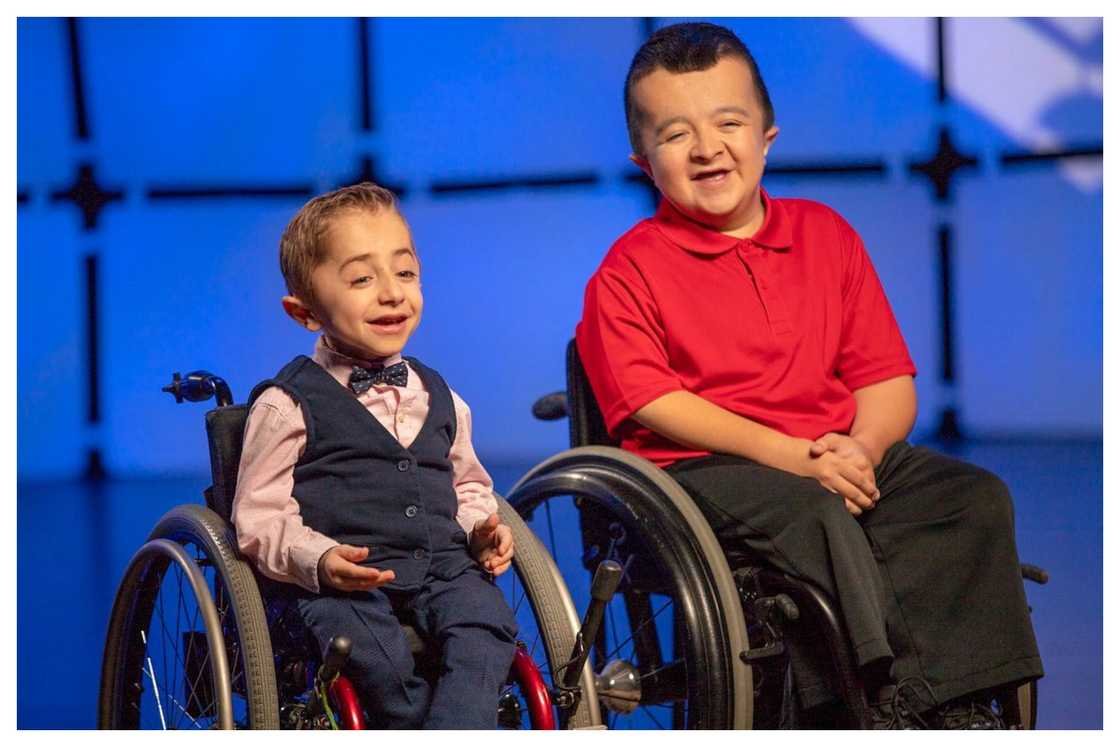Alec Cabacungan and Kaleb-Wolf De Melo Torres are two widely recognized faces in the world of commercials, particularly for Shriners Hospitals for Children. These two young boys have become the heart and soul of campaigns that raise awareness and solicit donations for children’s healthcare. Alec, with his contagious smile and energetic personality, and Kaleb, with his warm-hearted charm, have won the hearts of millions across the United States and beyond.
Given their high visibility in the Shriners Hospitals commercials, many viewers wonder, do alec and kaleb get paid for commercials their appearances?” Are these boys, who have become so beloved through their association with a charitable cause, compensated for their participation? This article delves into the lives of Alec and Kaleb, their involvement with Shriners Hospitals, and the often-asked question regarding their compensation for these commercials.
Who Are Alec and Kaleb?
Alec Cabacungan: The Inspiring Face of Shriners
Alec Cabacungan has been the face of Shriners Hospitals for Children since he was 12 years old. Born with osteogenesis imperfecta, or brittle bone disease, Alec has been treated at Shriners Hospitals throughout his life. Despite the challenges he has faced due to his condition, Alec’s incredible resilience and positive attitude have made him a natural advocate for the hospital and its mission.
His role as the spokesperson for Shriners Hospitals has grown beyond commercials. He’s appeared on talk shows, given speeches, and even participated in sports-related interviews. Alec is an aspiring sports broadcaster, and his on-screen presence in Shriners’ commercials serves as a valuable experience for his future career.
Kaleb-Wolf De Melo Torres: A Heartfelt Advocate
Kaleb-Wolf De Melo Torres, known simply as Kaleb, is another young boy who has gained recognition through his appearances in Shriners Hospitals commercials. Kaleb was born with a rare form of osteogenesis imperfecta, much like Alec. do alec and kaleb get paid for commercials has undergone numerous surgeries and treatments at Shriners Hospitals, which have significantly improved his quality of life.
Kaleb’s infectious smile and warm personality have endeared him to viewers, making him an effective representative for the hospital’s cause. His charm and ability to connect with audiences have made him a standout figure in the advertisements, and his story has inspired many people to support Shriners Hospitals through donations.
The Mission of Shriners Hospitals for Children
To fully understand Alec and Kaleb’s involvement, it’s essential to grasp the larger mission of Shriners Hospitals for Children. Founded in 1922, Shriners Hospitals provide specialized pediatric care regardless of the patient’s ability to pay. Their focus is on treating orthopedic conditions, burns, spinal cord injuries, and cleft lip and palate, among other pediatric healthcare needs.
Shriners Hospitals are renowned for offering their services free of charge to children in need, which is made possible through generous donations and fundraising efforts. The commercials featuring Alec, Kaleb, and other children aim to spread awareness of Shriners Hospitals’ life-changing work and encourage people to contribute to the cause. Alec and Kaleb, as real patients of the hospital, give a face to the organization’s mission and exemplify the positive impact of donations.
Do Alec and Kaleb Get Paid for Their Commercials?
Compensation for Appearances: The Common Assumption
A question often raised by curious viewers is whether Alec and do alec and kaleb get paid for commercials receive payment for their roles in the commercials. It’s a valid question, given their significant presence in the media and the fact that they are promoting a non-profit organization. To answer this, we need to explore the broader dynamics of compensation for individuals who work with charitable organizations.
In many cases, non-profit organizations do not pay their volunteers or spokespeople in a traditional sense, especially when they are patients or beneficiaries of the organization itself. The main objective of these campaigns is to raise awareness and donations to support the non-profit’s mission, rather than to profit from commercial endeavors. However, there are nuances to this, especially when minors or individuals with disabilities are involved in long-term, high-profile campaigns like Alec and Kaleb.
Public Statements and Transparency
While neither Shriners Hospitals nor Alec and Kaleb have publicly disclosed specific details about payment, several factors suggest that any compensation is minimal, if it exists at all. As spokespeople for a charitable organization, Alec and Kaleb likely participate in the commercials out of gratitude and a desire to support the hospital that has given them life-changing care. They, along with their families, may receive stipends or small reimbursements for their time and any expenses related to travel or production, but significant monetary compensation is unlikely.
In addition, both Alec and Kaleb continue to receive medical care from Shriners Hospitals. Their ongoing treatments, therapies, and surgeries are provided without charge, which could be seen as a form of non-monetary compensation. The visibility and experience they gain from their roles may also provide long-term benefits, such as networking opportunities, skill development, and increased public recognition, especially for Alec, who dreams of becoming a sports broadcaster.
The Ethical Considerations
It’s important to recognize the ethical implications surrounding the involvement of minors and individuals with disabilities in fundraising campaigns. Organizations like Shriners Hospitals must balance the need to raise funds with the ethical treatment of the children who represent them. These children, while patients, also become the public faces of the organization, a responsibility that can carry emotional weight.
Shriners Hospitals, known for its transparency and ethical practices, likely takes these factors into consideration. While Alec and do alec and kaleb get paid for commercials may not be paid in the traditional sense, their involvement is carefully managed to ensure they are not exploited. Their families, too, are likely fully aware of and supportive of their participation in these campaigns, understanding the impact their children’s stories have on fundraising and public awareness.
The Benefits Beyond Monetary Compensation
Building a Legacy and Inspiring Others
Even without significant financial compensation, Alec and Kaleb’s involvement with Shriners Hospitals has given them a platform that goes beyond mere exposure. They have become role models for children with disabilities and chronic illnesses, showing the world that limitations do not define a person’s potential. Alec’s aspirations to become a sports broadcaster and Kaleb’s joyful approach to life have inspired countless individuals facing similar challenges.
By sharing their stories, Alec and do alec and kaleb get paid for commercials contribute to a larger narrative about resilience, courage, and the importance of charitable work. Their work with Shriners Hospitals has allowed them to build a legacy that extends beyond commercials. Through public appearances, interviews, and speaking engagements, both boys have used their visibility to advocate for children’s healthcare and raise awareness about the critical work of Shriners Hospitals.
Developing Skills for the Future
For Alec in particular, his role as a spokesperson for Shriners Hospitals has allowed him to develop valuable skills for his future career in sports broadcasting. He’s had the opportunity to speak in front of large audiences, conduct interviews, and work alongside professional media teams. These experiences not only help him refine his communication skills but also provide him with a strong foundation for his future in media.
Kaleb, though younger, has also gained important skills through his work with Shriners. His involvement in the commercials has likely helped him develop self-confidence and public speaking abilities, which will benefit him in whatever career path he chooses later in life.
The Importance of Giving Back
For both Alec and Kaleb, their participation in Shriners’ commercials likely stems from a deep sense of gratitude. Shriners Hospitals have played a pivotal role in improving their quality of life, and by appearing in the commercials, they are giving back to an organization that has given them so much. Their stories help raise the funds necessary to provide other children with the same life-saving care they’ve received.
Conclusion: More Than Just a Commercial
The question of whether Alec and Kaleb are paid for their commercials is one that many viewers have pondered, but the answer is more complex than a simple yes or no. While they may not receive significant monetary compensation, Alec and do alec and kaleb get paid for commercials gain invaluable benefits from their participation in these campaigns. From life-changing medical care to personal development opportunities, their involvement with Shriners Hospitals goes far beyond financial rewards.
You may also read: squid ward




